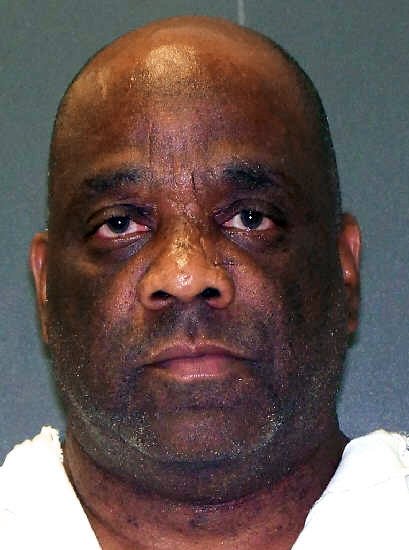HUNTSVILLE, Texas -- A Texas man convicted of killing a 38-year-old woman nearly two decades ago while he was on parole for a triple slaying years earlier was executed Thursday evening.
Robert Ladd, 57, received lethal injection after the U.S. Supreme Court rejected arguments that he was mentally impaired and ineligible for the death penalty. The court also rejected an appeal in which Ladd's attorney challenged whether the pentobarbital Texas uses in executions is potent enough to not cause unconstitutional pain and suffering.
Ladd was executed for the 1996 slaying of 38-year-old Vicki Ann Garner, of Tyler, who was strangled and beaten with a hammer. Her arms and legs were bound, bedding was placed between her legs, and she was set on fire in her apartment.
He was pronounced dead at 7:02 p.m., 27 minutes after the drug was administered.
Ladd came within hours of lethal injection in 2003 before a federal court agreed to hear evidence about records that suggested he was mentally impaired. That appeal was denied and the Supreme Court last year turned down a review of Ladd's case. His attorneys renewed similar arguments as his execution date approached.
"Ladd's deficits are well documented, debilitating and significant," Brian Stull, a senior staff lawyer with the American Civil Liberties Union Capital Punishment Project, told the high court.
Kelli Weaver, a Texas attorney general, reminded the justices in a filing that "each court that has reviewed Ladd's claim has determined that Ladd is not intellectually disabled."
Ladd's lawyers cited a psychiatrist's determination in 1970 that Ladd, then a 13-year-old in custody of the Texas Youth Commission, had an IQ of 67. Courts have embraced scientific studies that consider an IQ of 70 a threshold for impairment. The inmate's attorneys also contended he long has had difficulties with social skills and functioning on his own.
In the other appeal, Ladd questioned the "quality and viability" of Texas' supply of its execution drug, pentobarbital. The Texas attorney general's office called that challenge "nothing more than rank speculation."
When he was arrested in 1996 in Garner's slaying, Ladd had been on parole for about four years after serving about a third of a 40-year prison term for the murder of a Dallas woman and her two children. He pleaded guilty to those three murders.
David Dobbs, a former Smith County assistant district attorney who prosecuted Ladd in Garner's slaying, said Ladd's parole was "just ridiculous."
The Dallas and Tyler slayings were similar in that each woman was set on fire. Garner, described as mildly mentally impaired, and Ladd both worked at a Tyler mental health rehabilitation center.
Household items belonging to Garner showed up at a pawnshop Sept. 25, 1996, the same day firefighters discovered her body at her apartment in Tyler.
A Section on 01/30/2015

